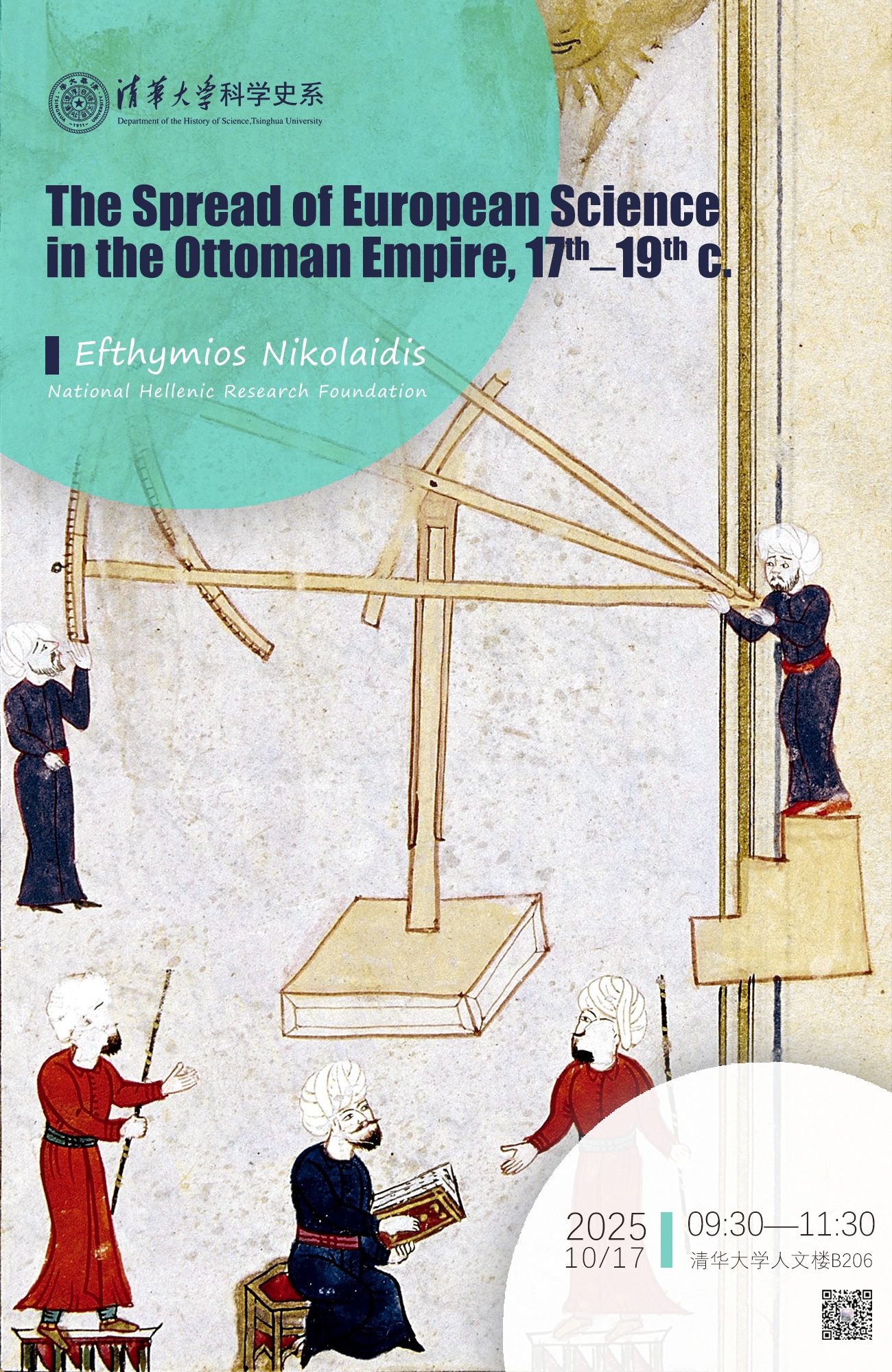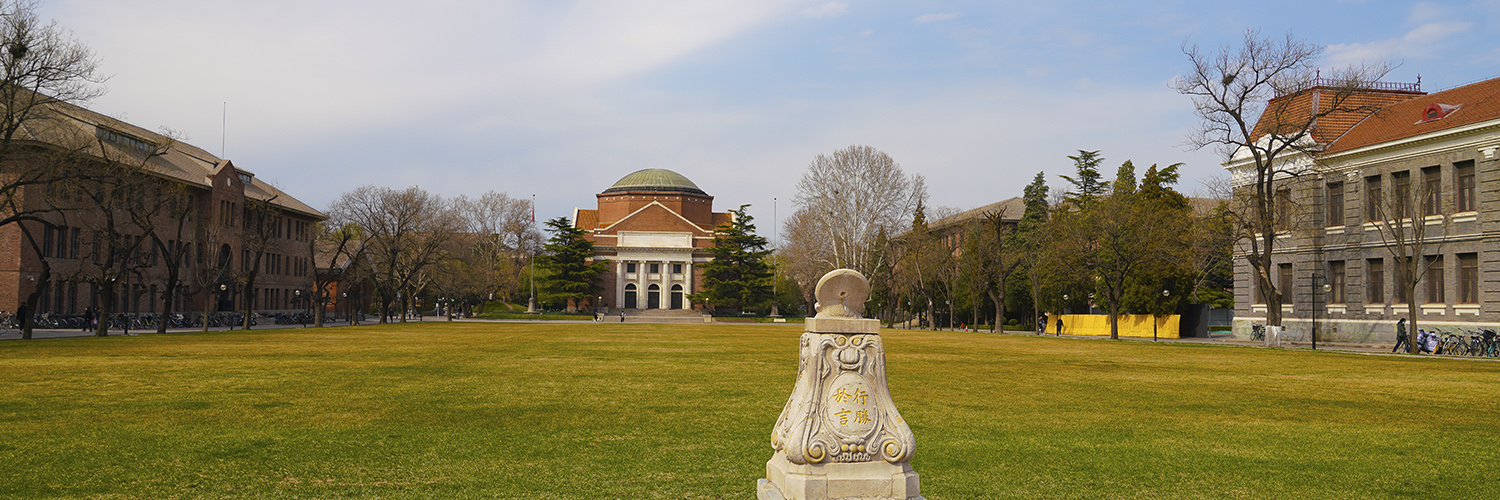时间:2025年10月17日 09:30—11:30
地点:清华大学人文楼B206
主题:The Spread of European Science in the Ottoman Empire, 17th—19th c.
主讲人:Efthymios Nikolaidis (National Hellenic Research Foundation,NHRF)

Because the Millet system restricted contact between Muslim scholars and Western education, new European scientific ideas entered the Empire mainly through the Greek-speaking Orthodox communities. These schools preserved the Byzantine educational tradition and taught in Greek, which became the medium for circulating works on modern science. However, the introduction of Copernican and other “new sciences” often clashed with entrenched Aristotelian doctrines, provoking theological and intellectual debates within the Orthodox Church.
After the Treaty of Küçük Kaynarca (1774), a wealthy, cosmopolitan Greek elite emerged, fostering the “Greek Enlightenment” and further spreading European thought. Yet the French Revolution’s secular and egalitarian ideals triggered a conservative backlash from the Fener aristocracy and the Church.
This lecture traces how European science entered and transformed the Ottoman intellectual landscape—from resistance and adaptation to its role in shaping the national movements that eventually contributed to the Empire’s disintegration.


